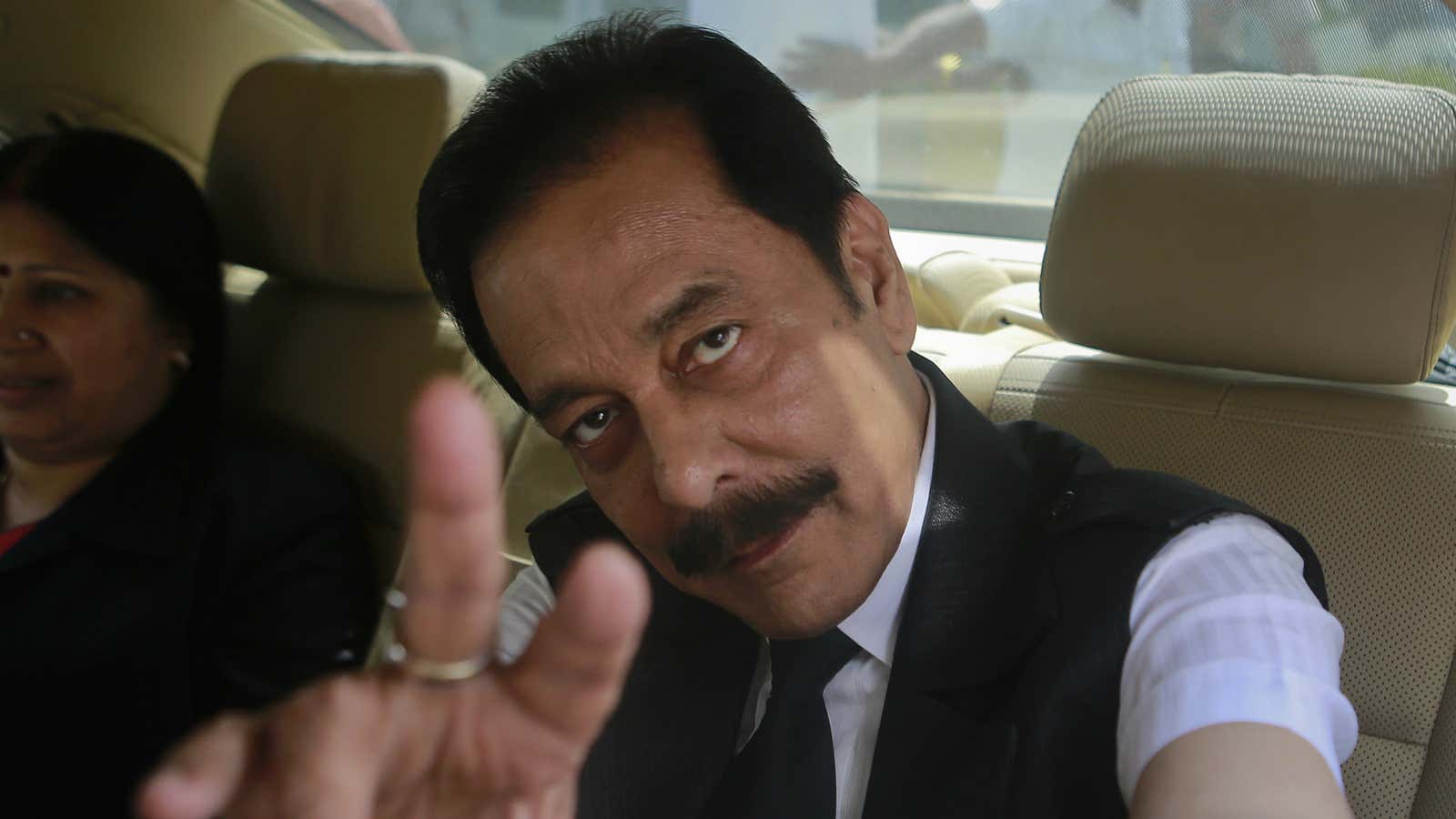Indian finance and real estate conglomerate Sahara India Pariwar, already battling Indian regulators, courts and its own investors, is taking on a financial journalist and publishing house with a lawsuit aimed at blocking a warts-and-all account of the company’s history and its controversial founder.
In a suit filed last month, Sahara and its chairman, Subrata Roy, asked the Kolkata High court to stop publication of the book and demanded 2 billion rupees ($32.3 million) in damages, at 24% annual interest. It accused author Tamal Bandyopadhyay, the deputy managing editor at of the Indian business newspaper Mint, of making “false, defamatory and malicious statements” in the forthcoming ”Sahara: The Untold Story.” On Dec. 23, the court issued a stay order halting Jaico Publishing House from publishing the book until the case is resolved.
Roy—who is embroiled in a contentious battle with financial regulators over nearly $3 billion that the company claims to have refunded to its investors—appears to have been participating in the book’s writing originally. He granted interviews to Bandyopadhyay, one of which was published one by Mint in March, with a long introduction explaining Sahara’s long and tangled history with regulators. Bandyopadhyay said in an e-mail he could not comment on the suit, and the phone in Sahara’s corporate communications department went unanswered.
The lawsuit alleges the book incorrectly questions the company’s source of funds, business management and the way it treats investors, as well as falsely accusing Sahara of paying for an entry in the Guinness Book of World records. (These questions, except for the very last, have also been raised publicly by Indian regulators.) The suit also states that reports of Roy’s “unnatural interest” in a Kashmiri painter and singer known as “Apple,” are untrue.
Having a book or article banned in India can be easier than in many other countries, because of broad language regarding freedom of printed speech, defamation and libel, and the slow pace of India’s courts. Having online information, including e-books, banned and removed from websites is even easier.
India was the first country in the world to ban Salman Rushdie’s “The Satanic Verses” in 1988, after two politicians warned it would create a law and order problem. ”The Polyester Prince” a non-fiction account of the life of Ambani Group founder Dhirubhai Ambani, was published in 1998 but never in India, after the author and publisher were threatened with lawsuits. (A second edition of the book, which cut out some material, was published in India in 2010.) A profile of Indian Institute of Planning and Management head Arindam Chaudhuri was removed from the website of The Caravan, an Indian magazine, after the publication was sued for defamation.
The Sahara suit seems to take these legal skirmishes a step further, arguing that the publication of a non-fiction book is predicated on the subject’s approval. The suit states: “The plaintiffs have not granted permission to the defendants for writing a book on the plaintiffs.”
